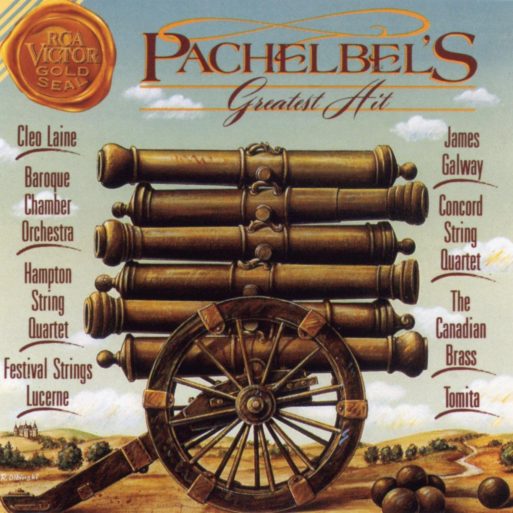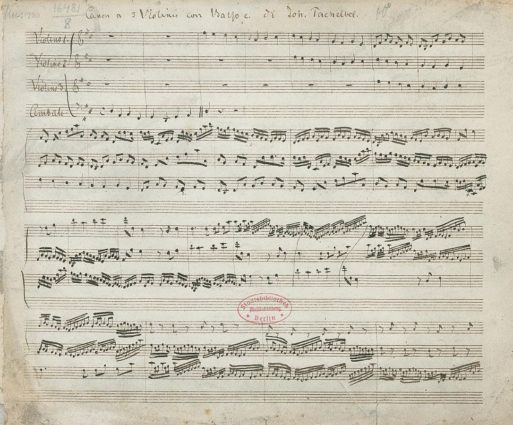 The first time I heard Pachelbel’s “Canon in D Major” I was at a retreat for the pediatric oncology staff at Stanford Children’s Hospital, where I worked. It was January, and we had just gone through an emotionally devastating holiday season during which several of our most beloved patients had died particularly difficult deaths. The hospital had arranged for a meditation coach to come to the retreat to work with us. And though we were not a particularly “New Age” group, many of us were open to almost anything that might help ease the pain of the past several months.
The first time I heard Pachelbel’s “Canon in D Major” I was at a retreat for the pediatric oncology staff at Stanford Children’s Hospital, where I worked. It was January, and we had just gone through an emotionally devastating holiday season during which several of our most beloved patients had died particularly difficult deaths. The hospital had arranged for a meditation coach to come to the retreat to work with us. And though we were not a particularly “New Age” group, many of us were open to almost anything that might help ease the pain of the past several months.
The coach encouraged us to sit or lie down on the floor, close our eyes and concentrate on our breathing. She spoke to us softly about grief and loss, and then let the silence take over while we sat quietly with our thoughts. After a while, she put Pachelbel’s “Canon in D Major” in the CD player.
I listened for a few moments and then thought to myself, “This is the most beautiful piece of music I’ve ever heard.” It simultaneously soothed and excited me. Even more surprisingly, it somehow brought me to a place where it was possible to escape briefly from the sadness and grief that I had been struggling with for so many months.
Since then I’ve heard Pachelbel’s “Canon” dozens of times. The context doesn’t seem to matter much. Each time the simple, soaring melody has the same effect, lifting my spirits and leaving me feeling at peace with myself and the world.

The oldest surviving copy of Johann Pachelbel’s “Canon and Gigue in D major,” from Staatsbibliothek zu Berlin
Credit: Wikipedia.org.
A Baroque Classic
No one knows exactly when Johann Pachelbel composed his “Canon in D Major.” It was originally part of a larger piece, a “Canon and Gigue for 3 violins and basso continuo,” which scholars believe he wrote between 1680 and 1706. The piece was well-received, as most of his compositions were. But its popularity eventually dwindled. It wasn’t until the Jean-François Paillard chamber orchestra released a recording of “Canon in D” in 1968 that it began to gain attention again.
Today, Pachelbel’s “Canon” has become one of the most well-loved pieces of music in the world. Yet, despite its popular appeal (or perhaps because of it), some critics believe it has become cliche. According to a 2010 essay by Robert Fink entitled “Prisoners of Pachelbel,” one writer called it “one of the most overused and abused pieces of insignificant music ever composed.”
Obviously, I disagree. I believe Pachelbel’s “Canon in D” is a rare piece of music that can help us commemorate the important events and people in our lives. It conveys hope, meaning, joy and the resilience of the human spirit — all without a single word.
I invite you to listen to the music in the video below and make up your own mind.

 “Canon in D Major,” by Johann Pachelbel
“Canon in D Major,” by Johann Pachelbel


 First the Wealth Gap, Now the U.S. Has a Growing Health Gap
First the Wealth Gap, Now the U.S. Has a Growing Health Gap
 How to Comfort A Dying Loved One
How to Comfort A Dying Loved One
 Our Annual Seven Holiday Gifts for Someone Who Is Grieving, 2024 Edition
Our Annual Seven Holiday Gifts for Someone Who Is Grieving, 2024 Edition














